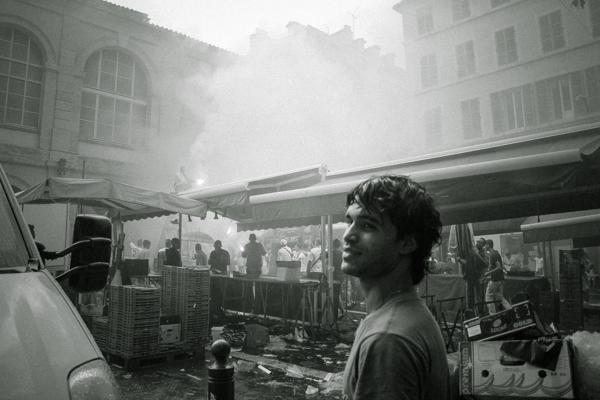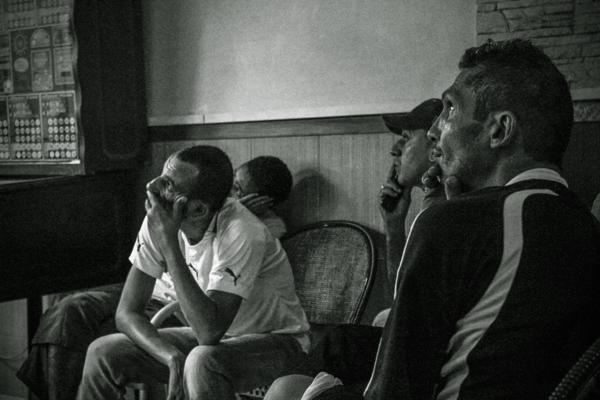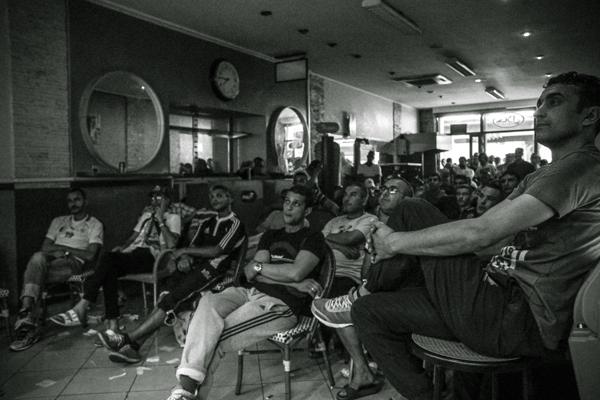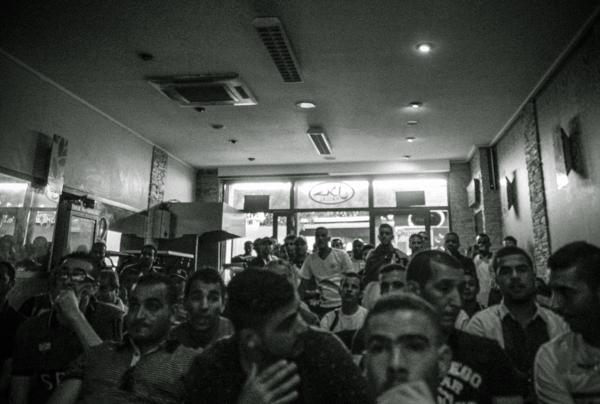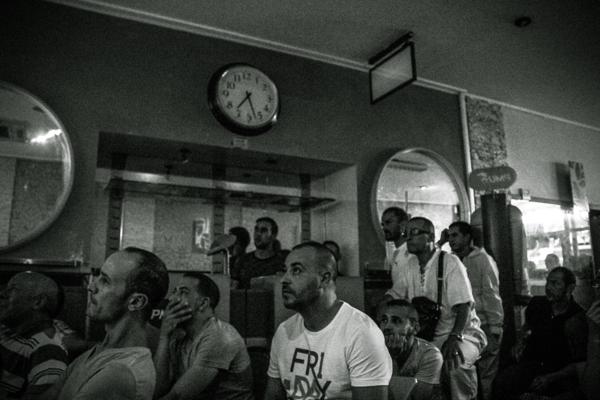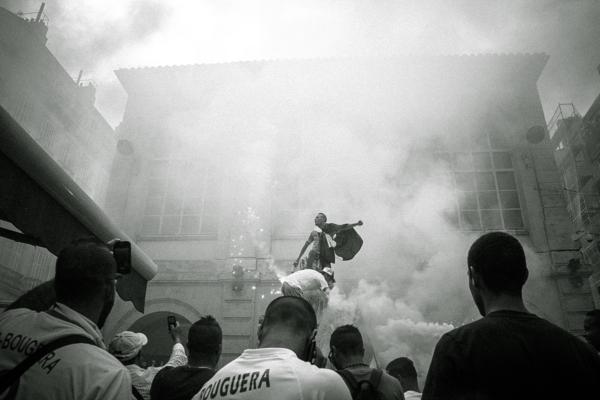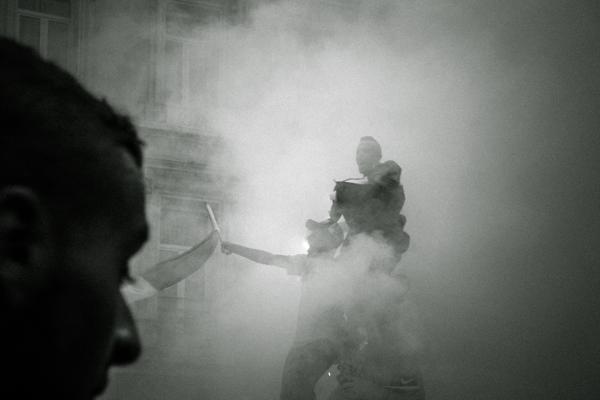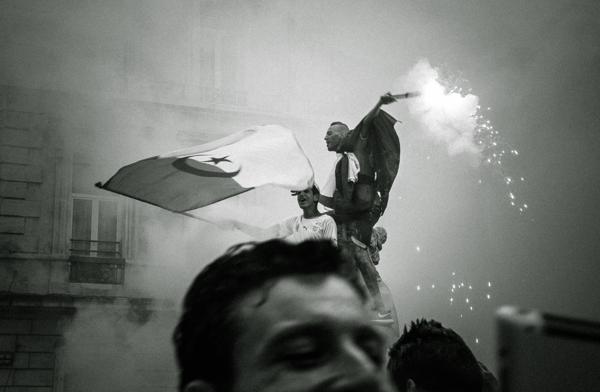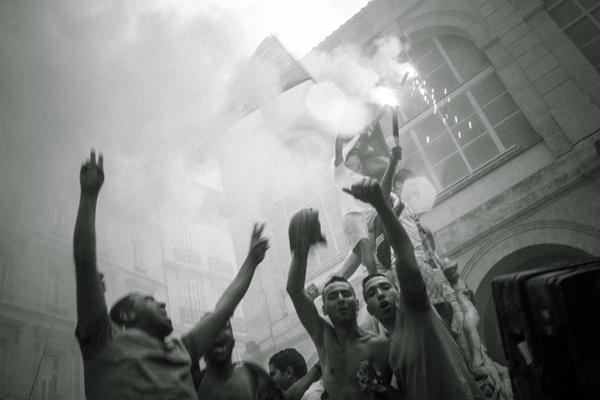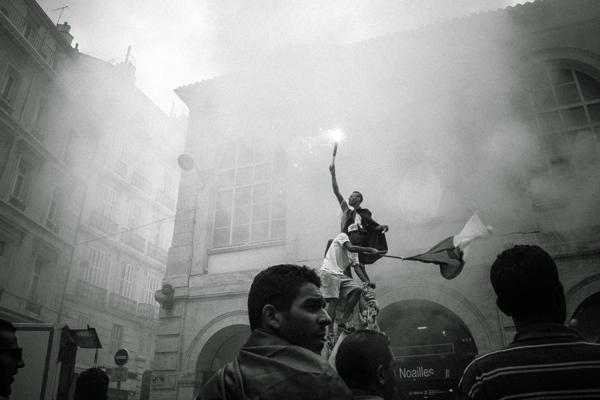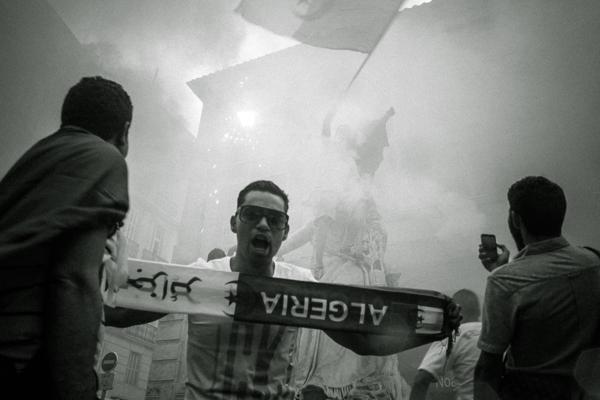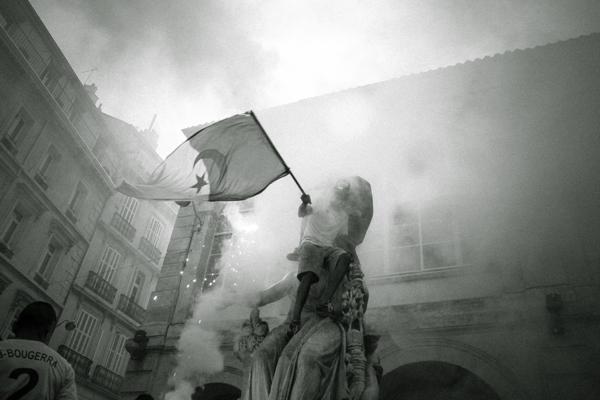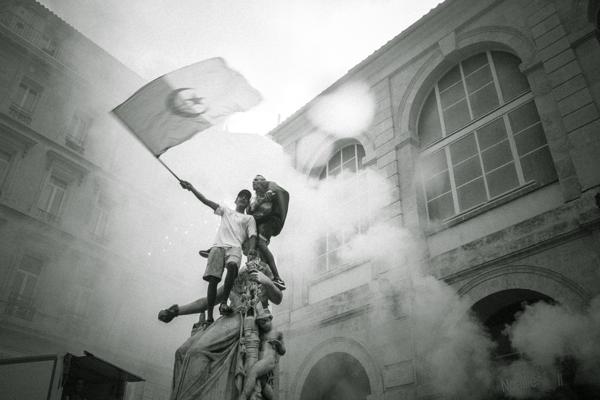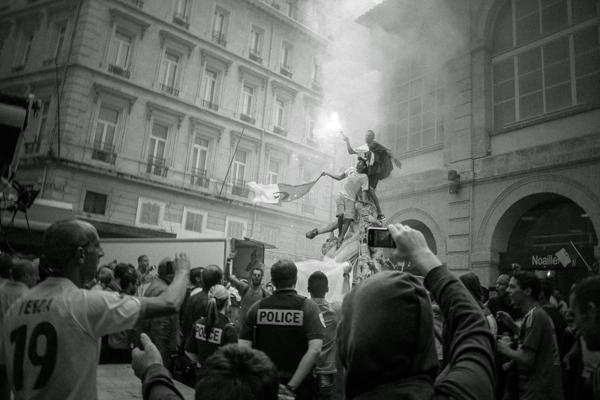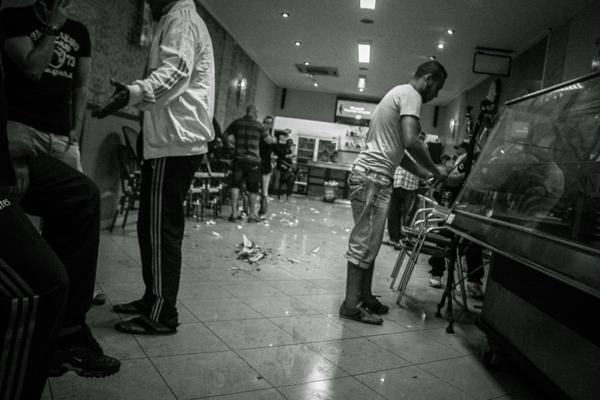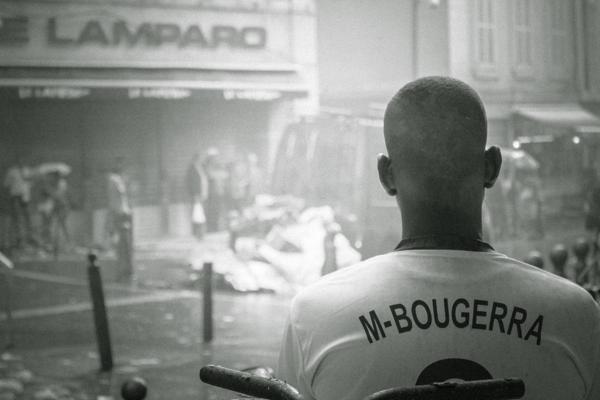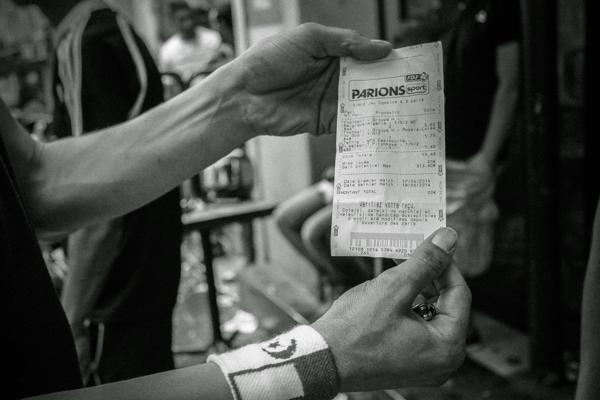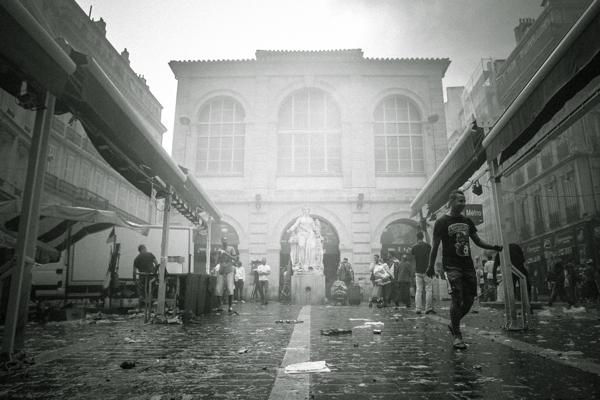Les Héros du Groupe H
UEFA World Cup 2014: at mid time Algeria is winning for 1-0 against Belgium. The joy of its supporters explodes in the heart of Noailles market in Marseilles, under an heavy rain and smoke bombs, just moments before the arrival of police. The series freezes the moment in which Les Fennecs entered the 16 best world teams, an historic results that almost pays off a 32-year-old injustice. In 1982, West Germany and Algeria were in the same first-round group. The Germans as the reigning European champions were none too concerned about playing the Algerians, who had never qualified for a World Cup. Their manager, Jupp Derwall, announced that if the Algerians won, he would “jump on the first train back to Munich.” The Germans did lose, 2-1, and in West Germany’s final match against Austria, after first goal, both teams spent 80 minutes trying not to score, aware that a 1-0 victory for the Germans would serve both their purposes. Two big soccer countries agreed among themselves to eliminate a little country like Algeria, in its first World Cup. The headline in the French newspaper L’Équipe the next day was “22 Red Cards”, and the game would be remembered as the match of shame. In 2014 Group H, the Germans were again favorites and won, but there were surely no jokes about catching trains back to Munich. For many, many minutes, it felt like Algeria would score, and would win. Algerian defeat was beautiful and cruel. The team was actually enjoying itself and all the international announcers seemed pleased to watch such great football. They may have lost, but they reminded us of the beauty of the game: that is what the people in the streets and plazas of Algiers and Marseilles knew and demonstrated, celebrating their heroes. This stunning visual moment carries the feeling of those moments when it seemed certain that Algeria would win, no matter the final defeat. And a world in which they did, or will, could still been imagined on the horizon.
